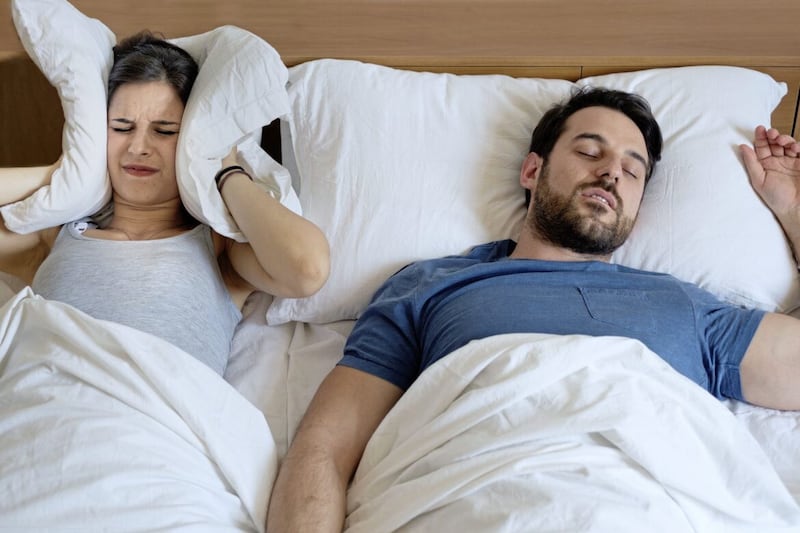A PILL taken at bedtime could stop snoring for good. The new tablet eases the symptoms of obstructive sleep apnoea (OSA) – which affects up to two million people in Britain, causing heavy snoring and, sometimes, interrupted breathing.
Initial results from clinical trials suggest the night-time pill may ease these problems by up to 74 per cent.
Both men and women can get OSA, but it is most common in men over the age of 40; obesity is one of the main risk factors. It occurs when the muscles in the airway, which naturally relax as we fall asleep, completely collapse.
The snoring sound is caused by air being forced through a smaller gap in the throat and, when the muscles collapse completely, this can shut off breathing for ten seconds or more.
When the brain realises breathing has stopped, it sends out a signal to contract the airway muscles, which normally makes the person wake with a jolt.
In severe cases, sleep can be disturbed every couple of minutes.
Treatments usually include lifestyle changes such as losing weight, cutting down on alcohol, sleeping on your side, and using a continuous positive airway pressure (CPAP) device, a mask worn over the face during sleep that gently forces air into the lungs to stop the airway from collapsing.
However, some people find the mask cumbersome and research suggests nearly a third never use the device, or abandon it. A once-a-day pill is seen by some sleep experts as the Holy Grail of sleep apnoea treatment.
The new tablet, currently code-named AD109, contains two existing medications.
The first, atomoxetine, has been around for nearly 20 years and is widely used to treat attention deficit hyperactivity disorder (ADHD) in children, by increasing levels of a brain chemical called noradrenaline, which helps to improve concentration.
U.S. scientists developing the new pill believe noradrenaline also stimulates the release of cells, called motor neurons, that keep airway muscles in good condition – reducing the risk of them ‘collapsing’ during sleep.
The other drug, oxybutynin, is usually prescribed to patients with urinary incontinence, stopping embarrassing leaks by reducing spasms in muscles that control the bladder.
In the throat and airway, oxybutynin is thought to act on receptors that make the muscles controlling the tongue contract – effectively holding it in place, rather than blocking the throat and causing snoring.
Neither of these drugs is currently used to treat OSA, but a 2018 study, by Brigham and Women’s Hospital in Boston, U.S., in which the two drugs were given at the same time to 20 snorers, revealed a powerful effect after just one night.
Some patients went from suffering an average of nearly 30 breathing interruptions an hour to just seven – a drop of 74 per cent – with symptoms improving from the first night in some cases.
Patients’ blood oxygen levels – important for heart and brain function – also increased significantly as they were able to get more air into their lungs.
Now a U.S. firm, called Apnimed, has combined these two medicines into one capsule and is setting up a clinical trial.
However, the treatment may not be without risks. Oxybutynin can cause dry eyes, stomach cramps and drowsiness; while atomoxetine has been linked with depression and suicidal thoughts in some children given it for ADHD.
Dr Neil Stanley, an independent sleep expert and a member of the British Sleep Society, says: ‘These are interesting preliminary findings and the reduction in symptoms is very promising.
‘But more research is needed to see if the effect is sustained.’








